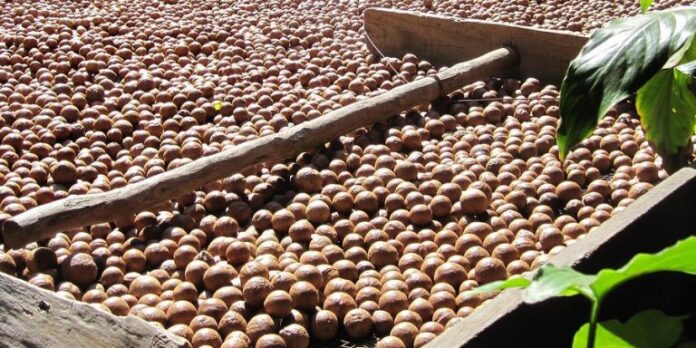The Government of Kenya through its Agriculture and Food Authority (AFA), has announced a temporary ban on the harvesting and trade of domestically produced macadamia nuts, effective from December 1, 2025, to February 15, 2026.
In a public notice dated November 10, 2025, AFA’s Director General Dr. Bruno Linyiru said the decision follows findings from a national macadamia phenological survey which revealed that a significant portion of the crop is still undergoing physiological development.
The Authority said the suspension aims to safeguard the quality of Kenya’s macadamia nuts and maintain the country’s reputation for premium-grade produce in international markets.
“The Authority has been implementing measures to align harvesting and processing practices on macadamia maturity trends, to safeguard kernel quality, oil content, and shelf life,” the notice stated.
The temporary closure applies to all macadamia value chain actors, including processors, exporters, importers, and marketing agents. During the two-and-a-half-month period, no macadamia harvesting, transportation, or trading will be permitted within Kenya.
According to AFA, the export closure period is intended to allow adequate time for the crop to mature fully and meet the required quality standards. The Authority warned that any premature harvesting could compromise the nuts’ kernel quality and market value.
Kenya has in recent years positioned itself among the world’s leading macadamia producers, with the high-quality nuts exported mainly to markets in Asia, Europe, and North America.
However, concerns have periodically emerged about premature harvesting and illegal trade, which undermine farmers’ earnings and the country’s export competitiveness.
Dr. Linyiru emphasized that the Authority would continue monitoring macadamia maturity trends nationwide and take action where necessary to ensure compliance.
“The Authority will continue to monitor the crop’s maturity trends and will communicate any necessary adjustments to the established harvesting and trading periods,” he said.
The AFA urged stakeholders seeking clarification to reach out via email at info@afa.go.ke.
The Authority’s directive is issued under the Crops Act 2013, which mandates it to regulate scheduled crops, enforce quality standards, and oversee compliance within Kenya’s agricultural value chains.








